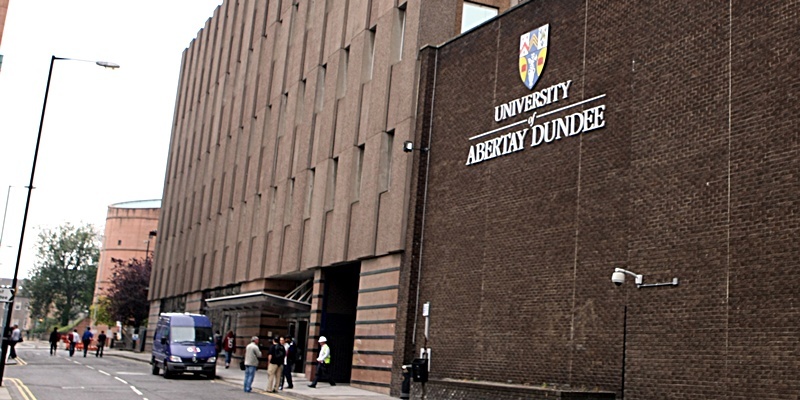The bitter leadership dispute that has marred the reputation of Abertay University is over.
A settlement has been reached with former principal Professor Bernard King which sees him confirm his retiral and end his legal claims against his former employer.
No details of the deal have as yet released by either party but it is understood that the agreement prevents Professor King from speaking publicly about his departure.
The university also refused to say what financial terms may have been involved. Professor King earned more than £222,000 a year before his retiral was abruptly announced without his consent a few weeks ago. He had been suspended since January, leaving the fate of the university unclear and prompting claim and counter-claim from his supporters and critics among the academic staff.
The episode has been worrying and embarrassing for the university. Had Professor King continued to pursue his attempt to take Abertay to an employment tribunal over claims of age discrimination and whistleblowing, the fallout from public hearings could have been even worse.
However, he had made it known that he was open to negotiations and the deal now means the university can move on although a decision has yet to be made about who will succeed the man who led it for 19 years and was the longest-serving principal in the UK.
Professor Nicholas Terry, who was himself suspended by Professor King after two senior academics and a secretary made serious allegations about his conduct, remains acting principal.
The university released a statement praising the achievements of its now-retired principal and promising to name its Bell Street library after him. It said it was “pleased to announce that all legal claims between the university and Professor King have been withdrawn and all outstanding issues between the two parties have been resolved.”Unique contributionThe statement went on to say that Abertay wished to recognise his “unique contribution to its development and success” during his career, saying he had been an “outstanding” principal and vice-chancellor. During his tenure he had “welded a small Scottish university into a globally recognised centre of excellence” in areas such as computer games and creative media, with links to institutions in many countries.
“Professor King has been a leader in the Scottish and UK governments’ desire to encourage ingenuity and brilliance and to capitalise on the knowledge transfer required for the development of the national economy,” the statement said. His impact on the students was also praised, including the development of the White Space multi-disciplinary learning centre, the student centre and the library that will now bear his name.
The statement added, “Professor King leaves behind a university in good shape, attracting record numbers of student applications and well prepared for the inevitable challenges ahead. The university and Professor King are united in a joint desire to move forward in the interests of Abertay’s students and staff and to build on past successes, to the benefit of the city of Dundee and the wider community.”
President of the students’ association William Mohieddeen said the announcement of the settlement was welcome, adding, “It is good this is not hanging over the university. It gives us time over the summer for the university and the students to look forward to the new academic year.”
He paid tribute to Professor King, describing him as the “driving force” behind Abertay’s rise to university status in the mid-1990s, and said he deserved credit for the developments of recent years.Mr Mohieddeen added that, since the principal’s suspension, the university had worked to ensure that the student experience was not affected by the dispute.
It has undoubtedly been a difficult few months for Abertay. Mr King suspended his deputy who was later reinstated following an inquiry and was then suspended himself by Nigel Hawkins, the chairman of the university court.
It quickly emerged there was a dispute in the upper echelons of management about whether the professor should stay on past retirement age and the future direction of the university.
The row took some of the shine off this month’s graduation ceremony and led to considerable unease among academics.
One senior member of staff, pro vice chancellor Rositsa Bateson who was one of three people to raise grievances against Mr Terry has resigned, as have five lay members of court.
A university source told The Courier that “several distinguished members of the professoriate are contemplating jobs elsewhere,” adding, “The way things are going now, what will be left of the university in six months? It might be a ruin of what it once was.”
